Dhruv Bhutani / Android Authority
When Apple announced the Apple Journal app in 2023, I was pretty excited. As an old-school physical journal aficionado, I’ve tried loads of journaling apps going back to the early days of smartphones and I have my favorites. However, more apps that bring new ideas and features to the mix are always welcome. To be fair, I didn’t expect to swap out my preferred app. But swap out I did. Two years later, Apple Journal is still on my iPhone 16 Pro Max and has become an important, though somewhat infrequent part of my use thanks to its deep Apple-ecosystem cross-platform access.
Apple Journal leans on wellness, the other leans on going all-in on AI.
Now that Google has joined the conversation, things are different. Android and Pixel phones are my preference. Arriving alongside the Pixel 10, the Pixel Journal app is clearly meant as a competition to Apple Journal and brings similar ideas. You can write short daily reflections, attach media and revisit your thoughts with some insights. Sounds straightforward enough? Yet, the apps have a few fundamental differences in approach. Compared to Apple Journal’s stripped-down, wellness-focused positioning, Pixel Journal tosses AI in the mix in a bid to push you towards active insights. But does it actually make a difference in what matters most? Let’s find out.
How comfortable are you with letting AI read your private journal?
0 votes
Apple Journal vs Pixel Journal: The ecosystem approach
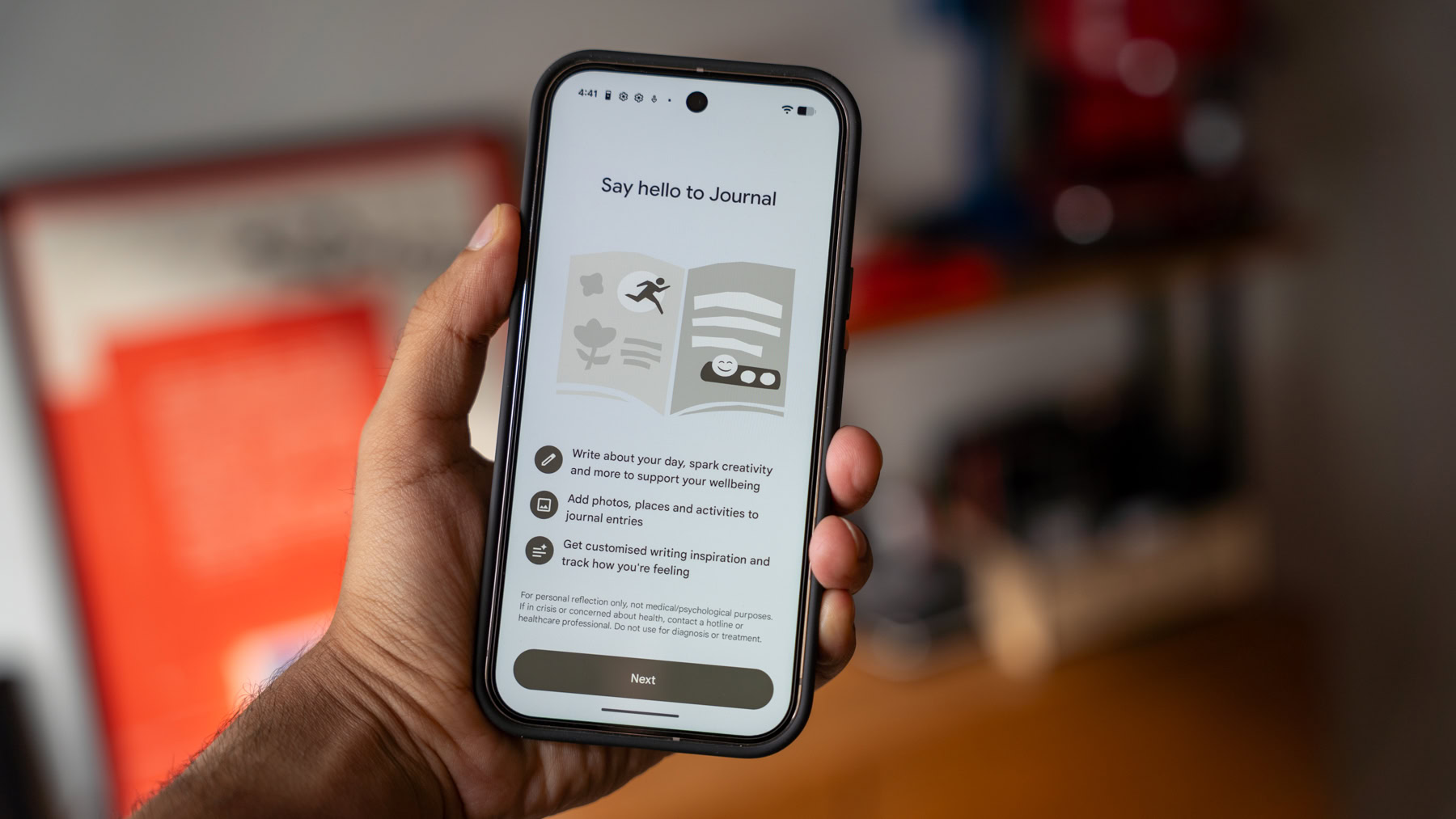
Dhruv Bhutani / Android Authority
Like most Apple apps, Apple Journal is deeply entrenched in its ecosystem. It connects to Photos, Fitness, and HealthKit, giving you contextual prompts that feel occasionally thoughtful, usually timely, if not a bit overbearing. For example, after a run tracked on Apple Fitness, the app might suggest reflecting on how you felt or what stood out during the workout. When used to its max, Apple Journal is designed to blend into your daily routine. It encourages mindfulness naturally without making it feel forced. In actual use, I’m not the biggest fan of proactive nudges, but that’s just me. The ability to create multiple journals has been fantastic. It has allowed me to segregate personal reflections, holistic logs, and more, which makes it adaptable over time. You can even have a separate journal chronicling each holiday or trip you take. Each journal can develop its own personality, which encourages long-term engagement and thoughtful separation of ideas.
Apple’s multiple journals let you separate work, personal reflection, and trips — Pixel Journal only supports one.
Like Apple Journal, Pixel Journal can read data from Health Connect and other Google apps, so your steps, workouts, and health trends can inform journal prompts. However, it treats this data differently. Health is just one input among many, including calendar events, photos, and location history. So far, I haven’t seen nudges toward logging how I felt after a workout or actively integrating my fitness data into the journal. The option is there, but it’s not forced on you, which I appreciate. Regardless of what you enter, the local AI generates prompts and summaries based on these inputs — more on that shortly.
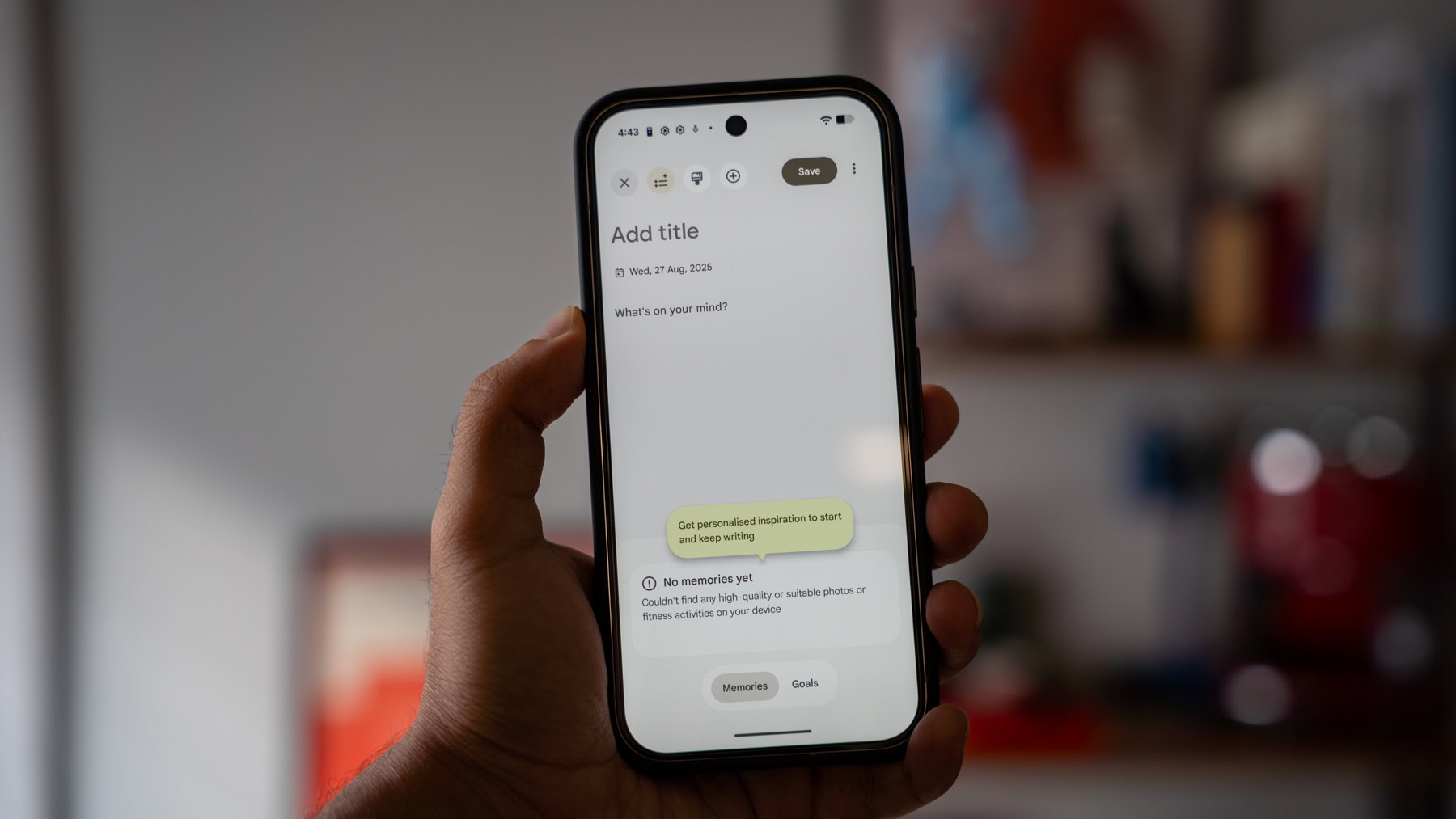
Dhruv Bhutani / Android Authority
However, unlike Apple, Pixel Journal only supports a single journal feed, which significantly limits organizational flexibility, especially if you’re an avid chronicler of life’s mundane and not-so-mundane activities. You cannot maintain separate streams of thought for work stresses and achievements, personal reflection, or creative writing. This single catch-all notebook approach makes the experience feel a bit linear and less structured, which can frustrate users who want more control over how they archive different parts of their life. That said, this is just the first iteration of Pixel Journal, and we can probably expect more features down the road.
Another distinction is platform support. Apple Journal syncs across iPhone, iPad, and Mac, making it accessible across multiple devices. In fact, Apple Journal’s Mac app is what naturally encouraged me to use it more. Pixel Journal is currently limited to Pixel 10 devices, which keeps the AI experience contained but also restricts cross-device journaling. I get that Google wants to showcase the Pixel 10’s on-device AI capabilities using the app, but having a web app tapping into Gemini’s power would go a long way toward encouraging heavy users to adopt the platform. It’s just much easier to write long diary entries on a large screen or laptop than on a phone. With the way the app is set up, though, and its on-device restriction, that’s quite unlikely to change soon.
Writing and reflection: AI does the heavy lifting
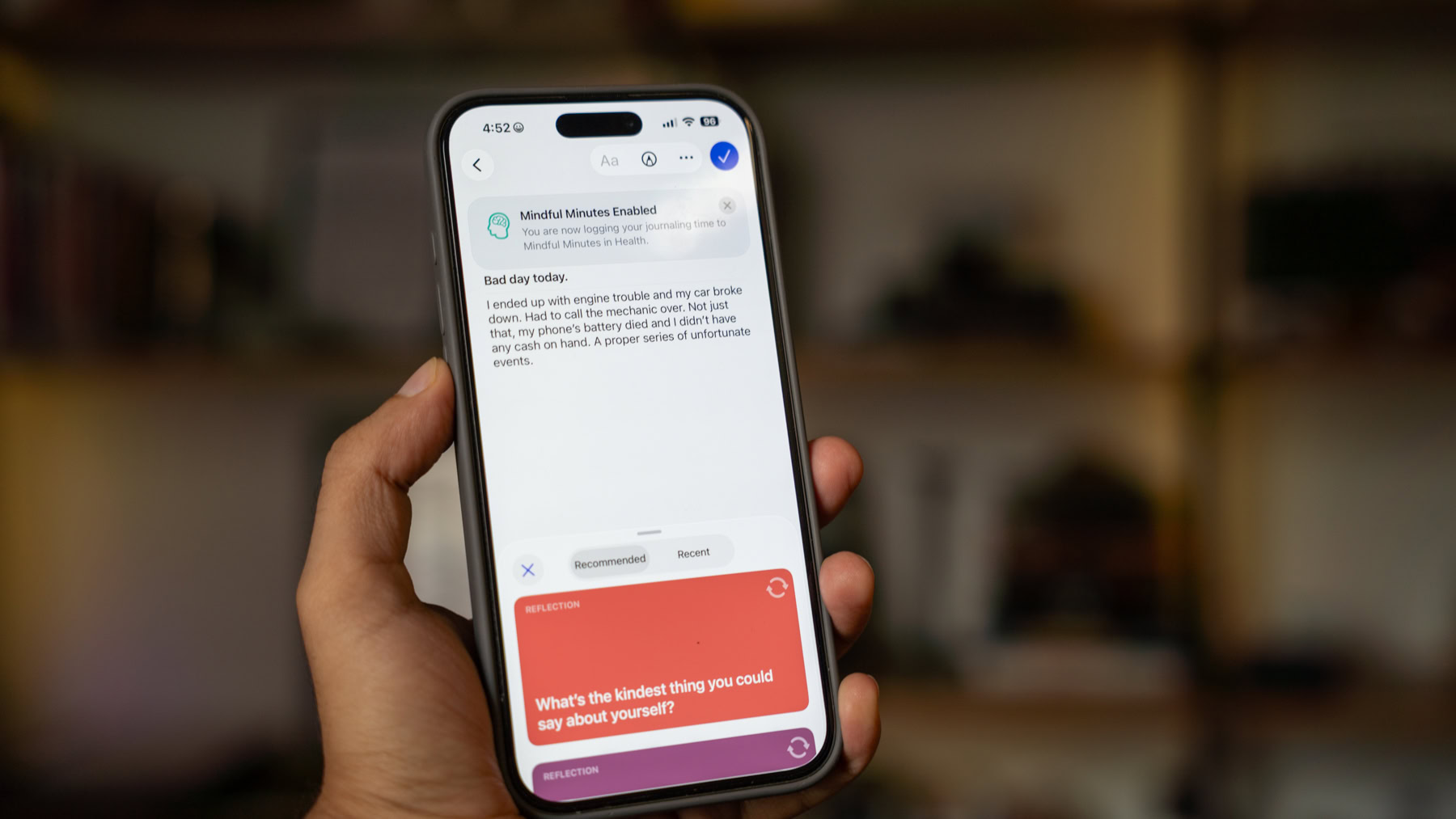
Dhruv Bhutani / Android Authority
It’s early days yet, but another major difference between the two apps is how they nudge you toward journaling. Apple Journal takes a subtle approach. When you open the app, you are met with a clean, uncluttered interface. As you type, you are occasionally given suggestions to kickstart journaling. In my experience, these suggestions have never been particularly relevant. Once in a while, you might get a prompt tied to photos, locations, or recent activity, but that hasn’t been my experience. There is an overall calendar view and writing streaks that hint at gamification, but they are not intrusive and create a low-pressure environment that encourages daily reflection.
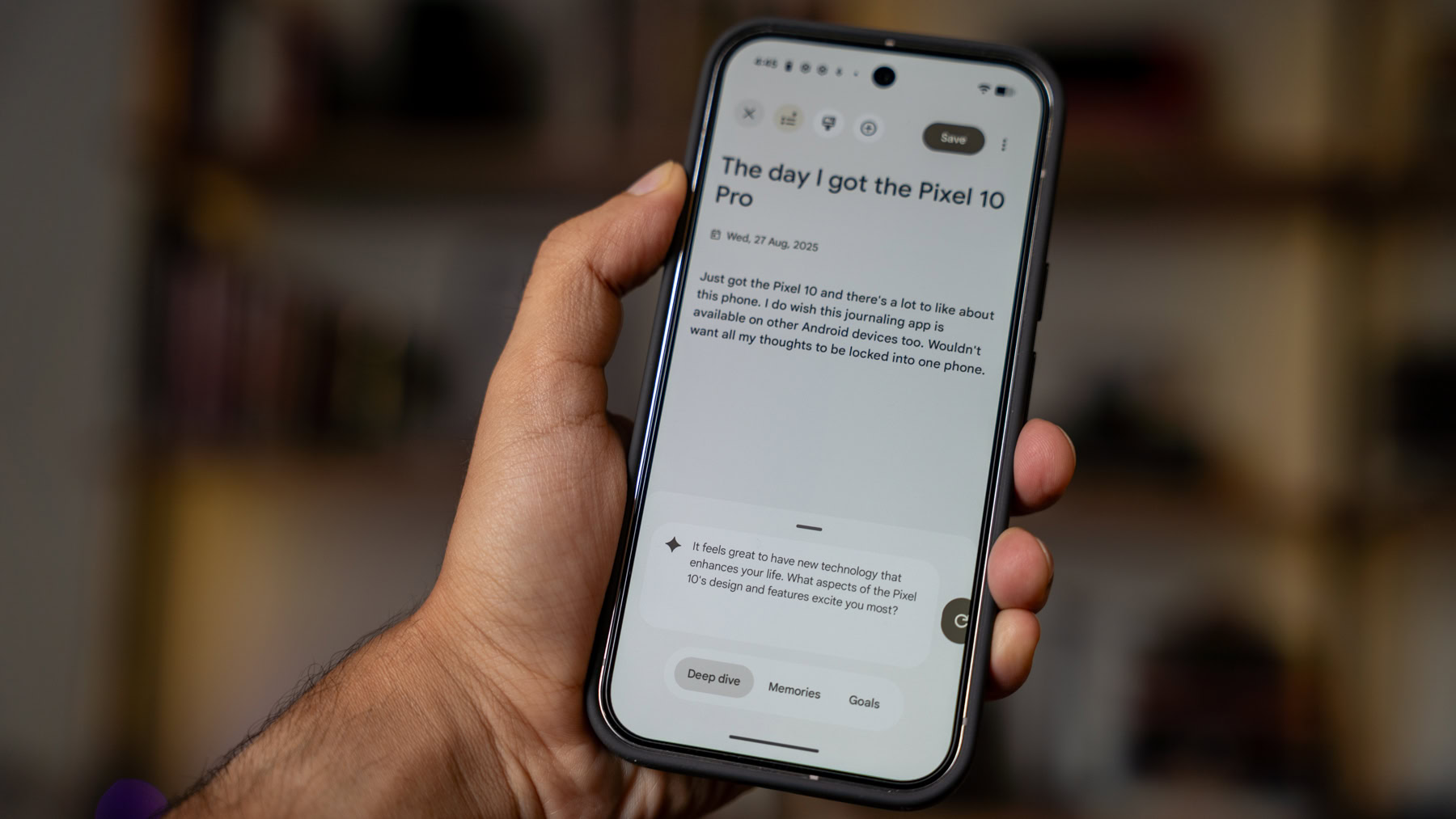
Dhruv Bhutani / Android Authority
Pixel Journal is more proactive. It leverages Gemini Nano to analyze your day, reading from Health Connect, Photos, Calendar, location history, and previous journal entries. That last one is where things get interesting. I’m not sure what I feel about AI reading my thoughts, but it is impressive to see prompts specifically picking up a disappointing day or an exciting event and nudging me to note my feelings. This approach ensures that users who struggle to articulate thoughts still have prompts, but it can feel slightly restrictive if you prefer a freeform style. I’d probably have turned it off if I didn’t know the app was using on-device intelligence. I’m not ready to feed my private thoughts as AI training data just yet.
Pixel Journal’s AI can track moods and suggest reflections, but may feel restrictive for freeform writing.
The AI-powered approach has a secondary benefit. While both apps visually indicate the dates on which you penned journal entries, Pixel Journal uses sentiment analysis to indicate good or bad days with emojis. Apple Journal, on the other hand, asks you to manually input your mood. Pixel Journal is simpler, Apple Journal is more granular with its multiple layers of emotions that you can enter in. Ideally, I’d want a middle-ground approach.
Apple Journal vs Pixel Journal: All the extra bits
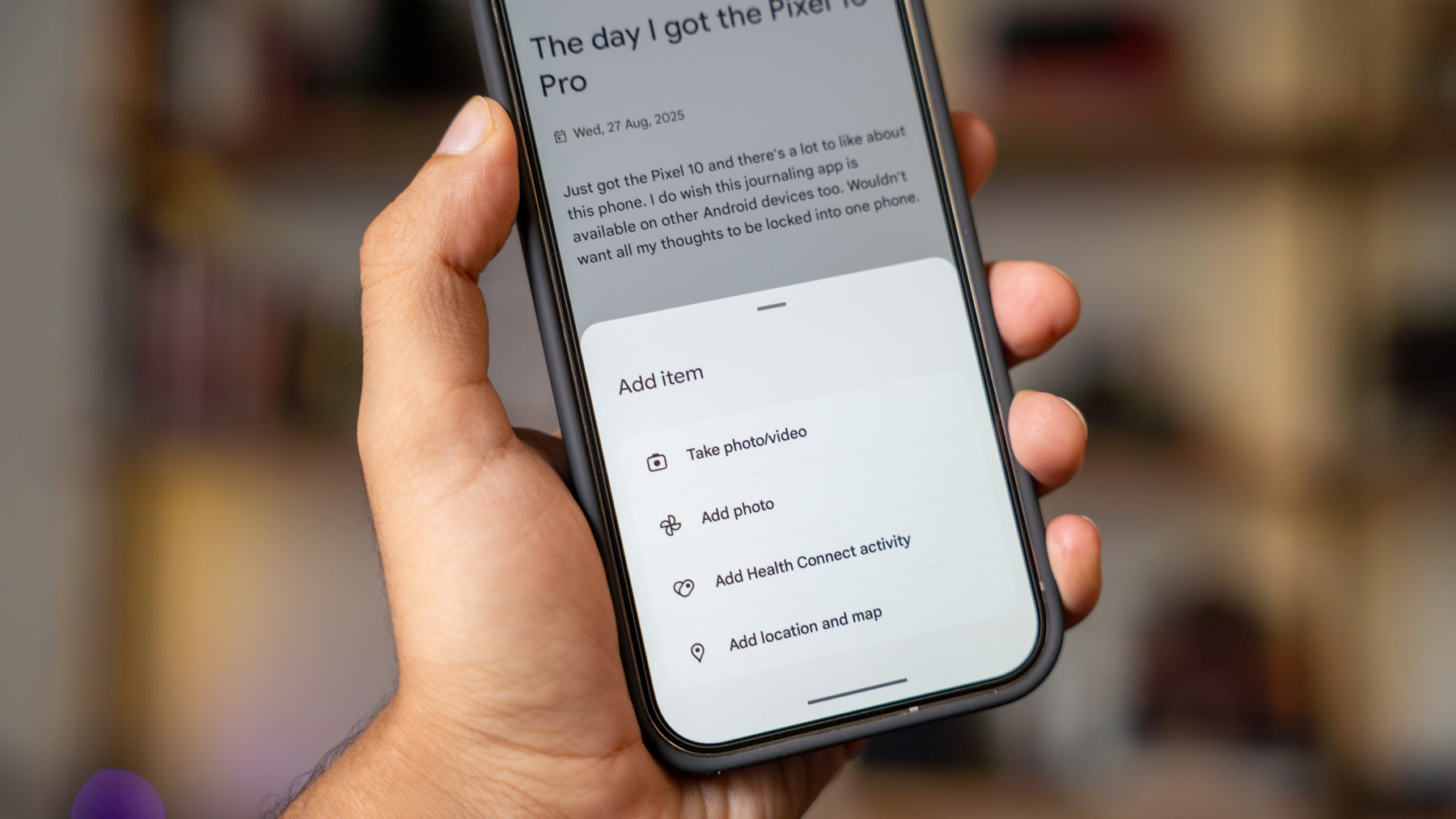
Dhruv Bhutani / Android Authority
Once you start populating your journal, additional contrasts become apparent. Apple Journal integrates tightly with Photos, allowing you to include images, videos, and location data. I’m a big fan of the Map view, which lets me pinpoint where I journaled. Whether it’s a deep thought on a mountain hike or a memory of a marathon, seeing where I was while writing enriches the experience compared to a traditional notebook. In fact, it’s a major reason why I even use digital journals.
Pixel Journal also allows photos and location data to be attached to entries, but it lacks a dedicated map view. There’s no way to visualize my journaling activity other than scrolling through a calendar feed. Sure, scrolling back works, but tapping a location on a map to see what I was thinking there would be far more intuitive. I expect a Google Photos-style memories feature eventually, but before that, a straight-up map view should be a priority in my opinion.
Pixel Journal’s lacking map view and export options is a negative in my books.
Finally, privacy and control are central to the journaling experience and both apps do well here. Apple Journal encrypts entries end-to-end, locks them behind Face ID, so you can trust that your reflections are as secure as they can be. Additionally, surprisingly for Apple, the app allows you to export or print your journal entries straight from the app. This ensures that your journal entries aren’t perpetually locked into Apple’s ecosystem.
Pixel Journal also emphasizes security. Processing happens on-device, entries are encrypted, and backups to Google accounts are optional. You can even use the app without ever logging into an account. However, there’s the open-ended question of letting an AI access your most private thoughts. Google also doesn’t let you export entries, which I’m not a fan of, especially given Google’s notorious history with experimental apps and bad long-term support. I don’t want to lose my personal thoughts to another Google Graveyard product.
Apple Journal vs Pixel Journal: Mindfulness meets AI
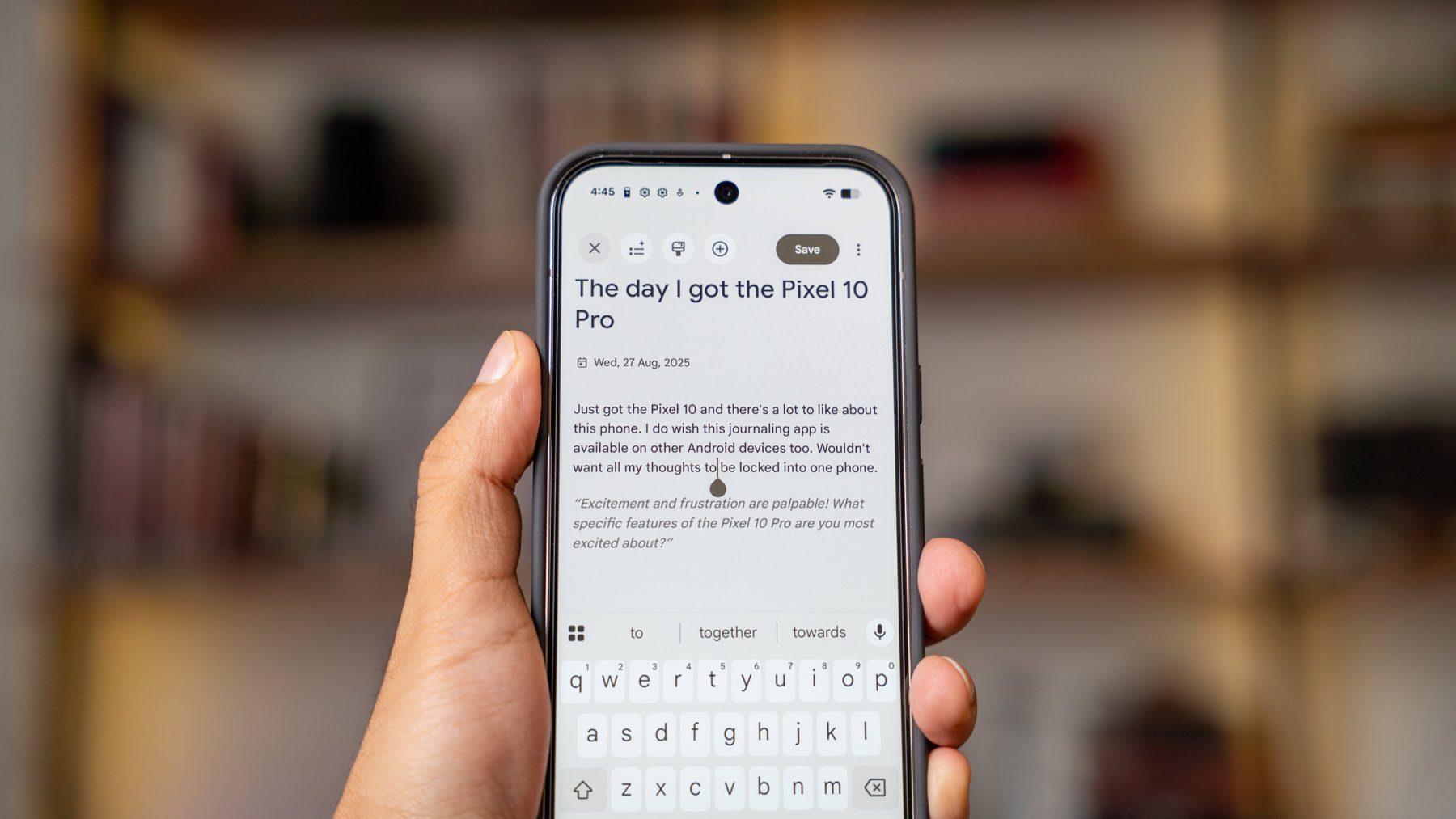
Dhruv Bhutani / Android Authority
Ultimately, the choice comes down to what you want from a journaling app. Apple Journal encourages holistic mindfulness, lets me manage multiple journals, and integrates tightly with the Apple ecosystem. It even has a map view. Pixel Journal, on the other hand, delivers AI-driven insights, pulls data from multiple sources, and helps me analyze my day. Yes, it only supports a single journal, lacks a map view, and is limited to Pixel 10 devices, but it’s early days.
The choice comes down to simpler mindfulness versus AI-driven insights.
If you want the most full-featured journaling experience, a dedicated third-party app like Day One is probably what you’re looking for. As it stands, both Google and Apple’s first-party apps are fairly full-featured and a solid place to start journaling. Apple Journal’s more traditional approach to journaling makes it a solid app for anyone in the ecosystem. Which one do I prefer? If Pixel Journal gets a map view and export capability, I’d be all in for those incredibly nifty AI-generated conversational prompts.
Thank you for being part of our community. Read our Comment Policy before posting.






